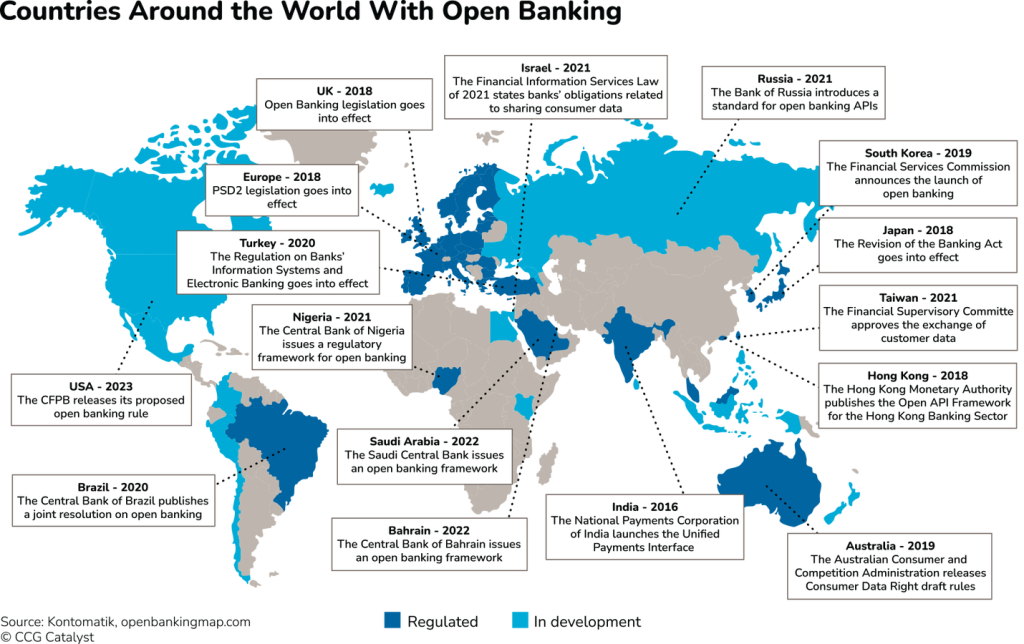The Consumer Financial Protection Bureau is on track to finalize an open banking rule that will require financial institutions to provide access to customers’ financial data to third parties like fintechs. While there is debate about the opportunities and risks of this rule, the bottom line is that FIs will have to comply if it goes into effect. The real issue now is how they will do so, as many institutions struggle with outdated infrastructure that makes data sharing difficult. The ability to share data externally through standardized APIs is crucial, and FIs need to prepare their infrastructure for this new requirement.
Many banks and credit unions are looking to technology providers, third-party aggregators, and in-house developers to help them navigate the open banking rule. Core system and digital banking providers like FIS, Fiserv, and JHA are preparing to assist their clients with compliance, focusing on consent management, data orchestration, and aggregation. Third-party aggregators such as Plaid and Tink are also making deals with FIs and other technology providers to stay ahead of the rule. In-house developers with technical knowledge can help institutions plan beyond compliance and create a long-term strategy for open banking.
FIs should consult a range of experts as they develop their open banking strategies, whether they are focused on compliance or looking to innovate further. While simply waiting for core providers to dictate compliance is an option, it may overlook opportunities for differentiation. Understanding the rule’s requirements is just the starting point, and institutions should explore additional use cases and ways to stand out in the market. By seeking knowledge and staying informed, FIs can approach open banking compliance in a way that aligns with their specific goals and priorities.
It is important to note that the CFPB’s rule only covers certain types of data, leaving room for additional use cases and opportunities for innovation. Compliance is essential, but forward-thinking institutions will look beyond basic requirements and explore ways to set themselves apart in the open banking landscape. Whether a bank is focused on meeting the rule’s minimum standards or seeking to differentiate themselves, understanding the potential for innovation in open banking is key. By staying informed and proactive, FIs can position themselves for success in a rapidly changing financial industry.















